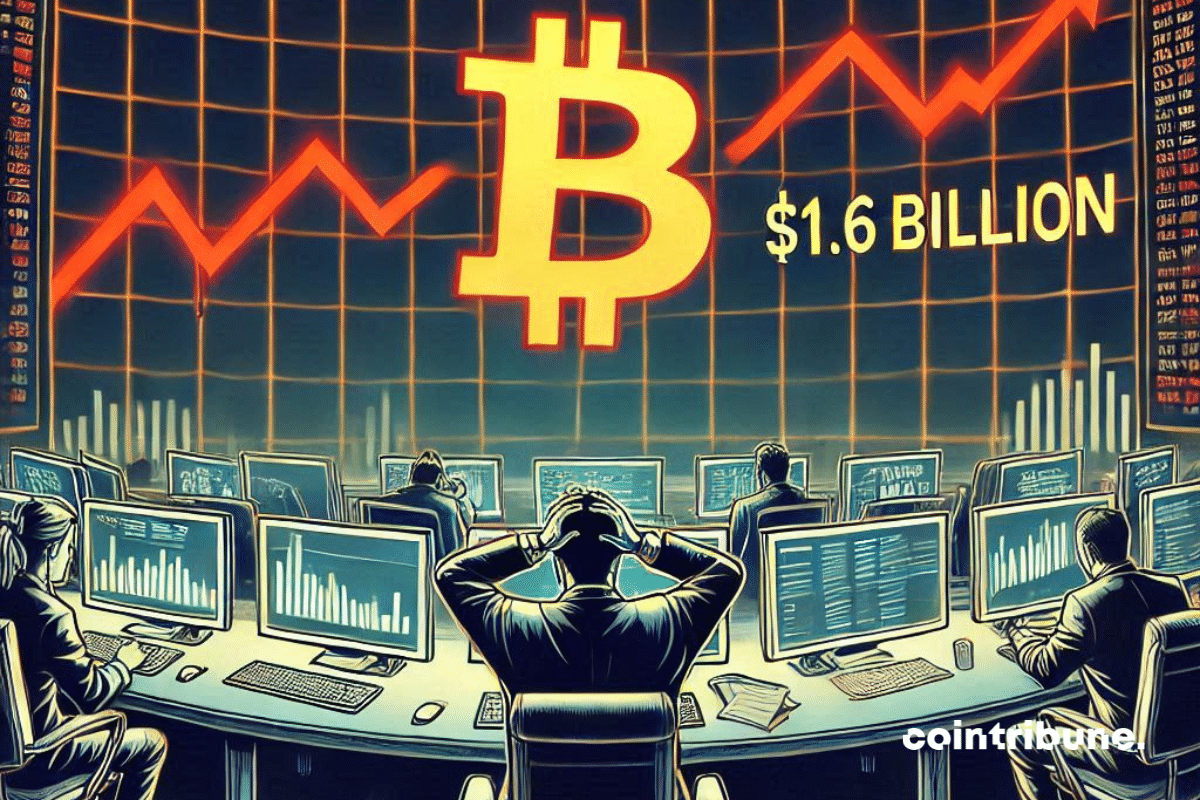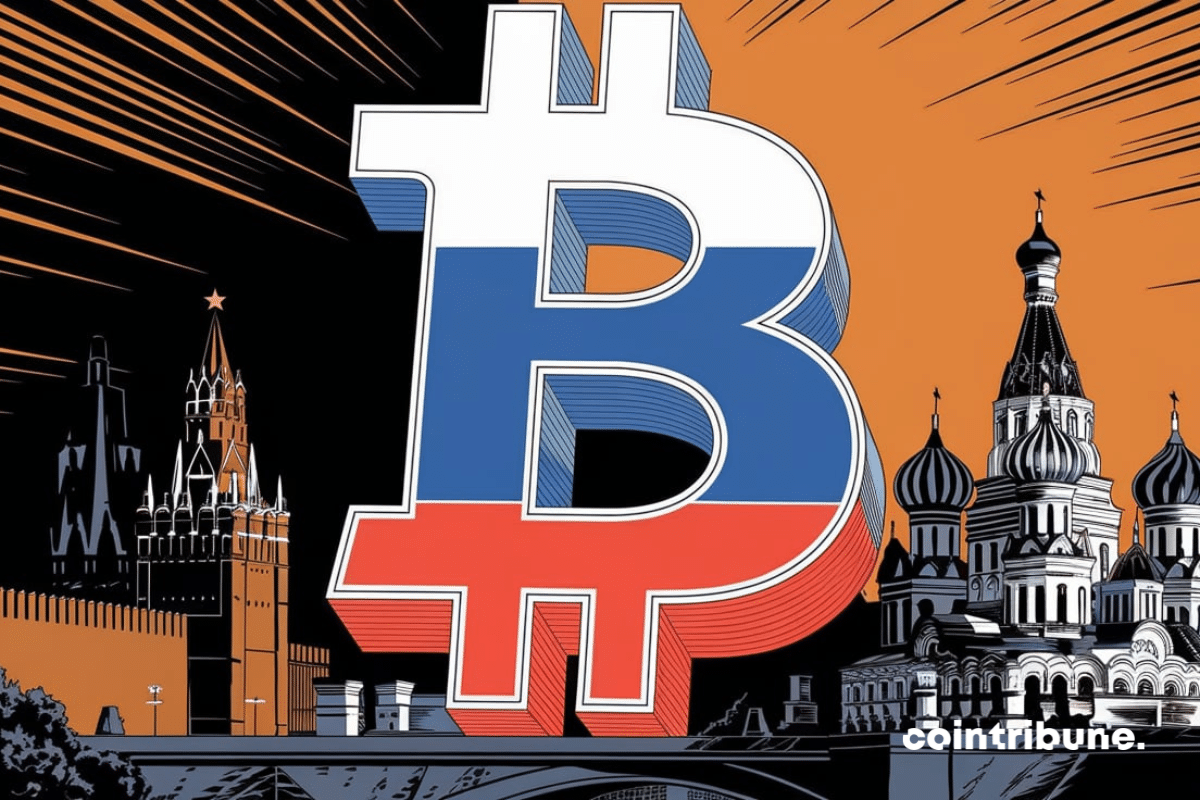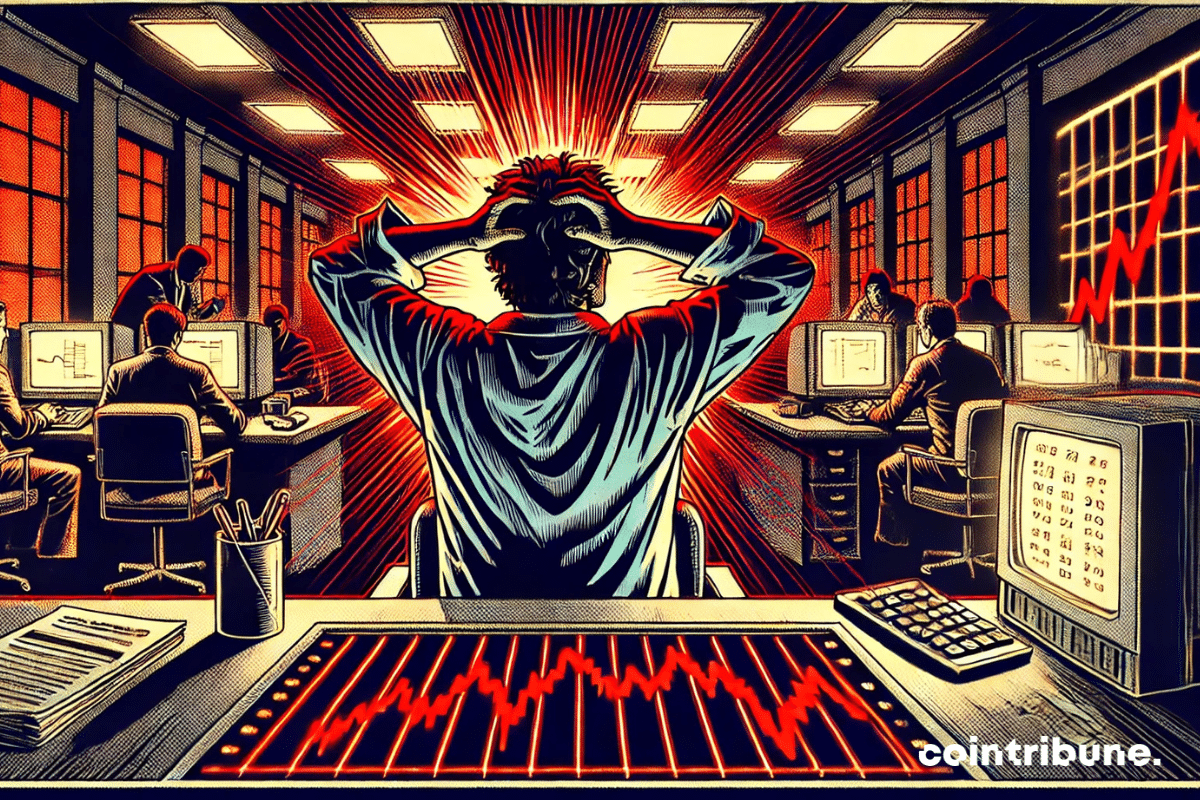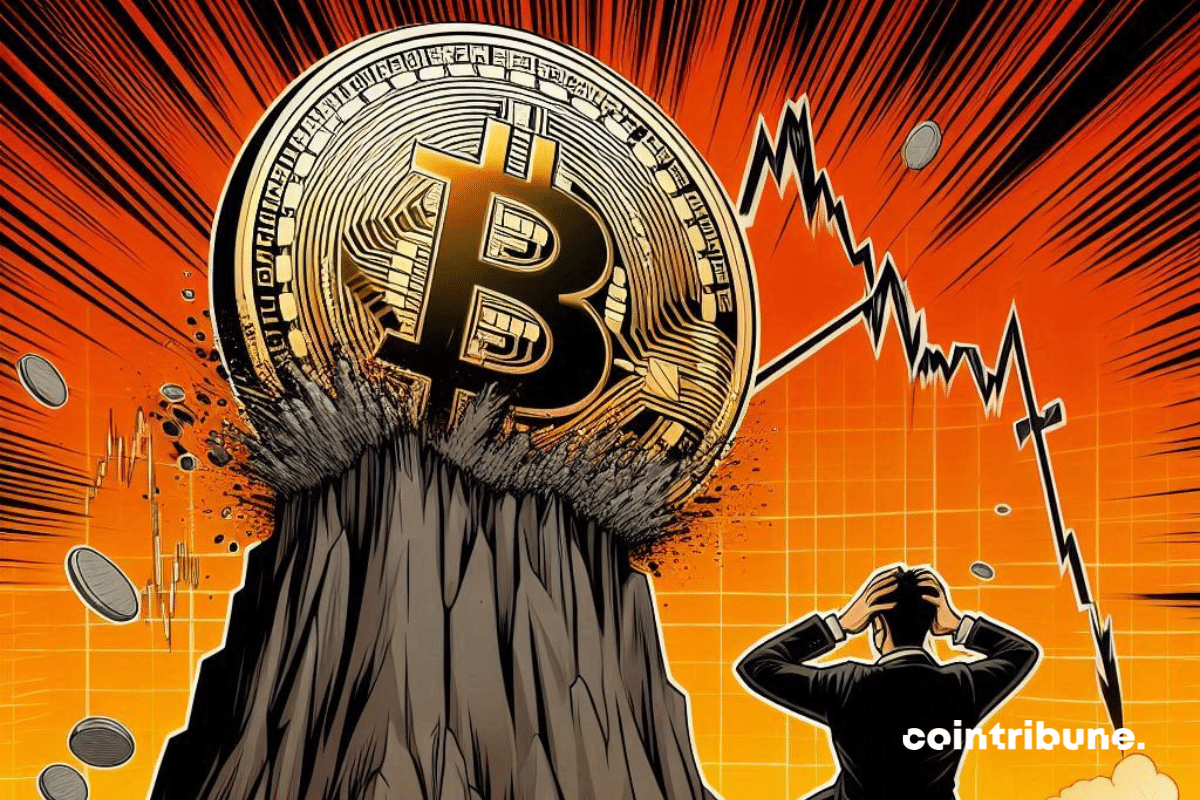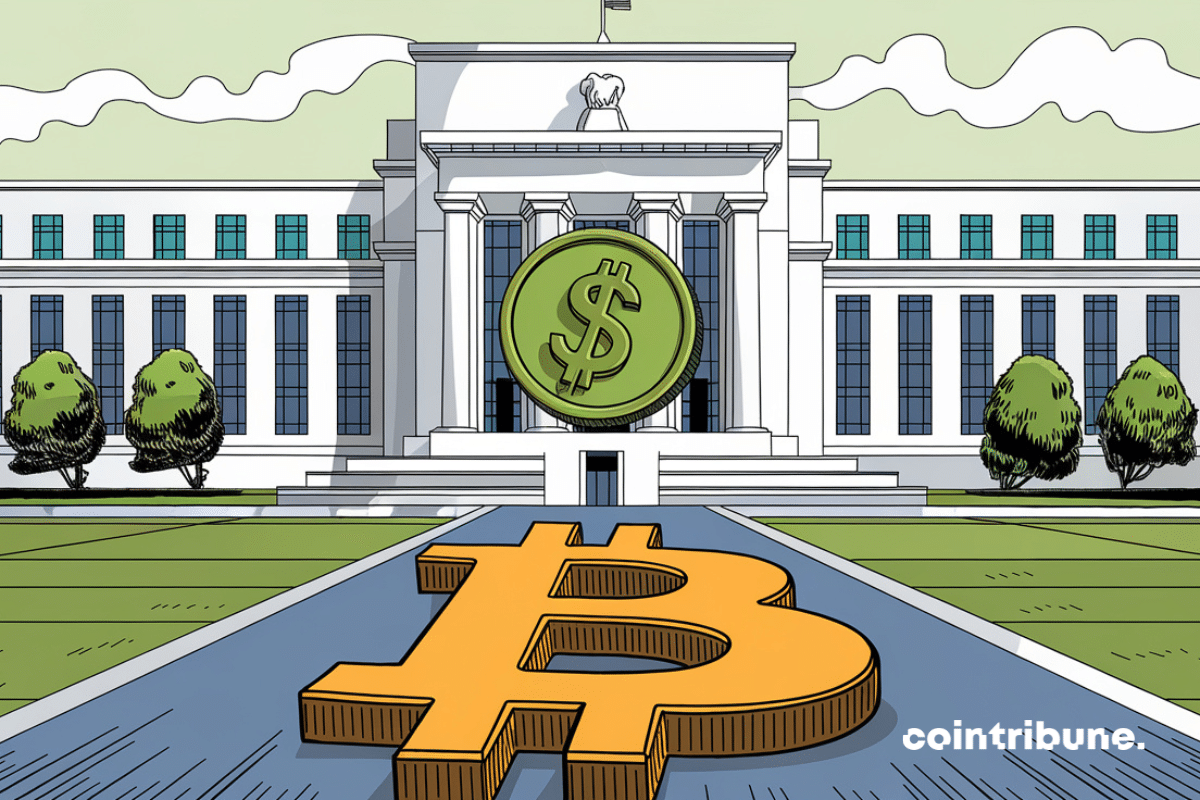A fascinating chaos is shaking the crypto world: Coinbase, as an improbable puppeteer, triggers a ballet of $1.6 billion in liquidations, leaving traders and altcoins in tatters.
Theme Bitcoin (BTC)
For years, Bitcoin has established itself as a central topic in economic and financial debates, deeply dividing opinions. For its supporters, it represents a monetary revolution capable of redefining the rules of the global financial system. Conversely, its detractors denounce its volatility and the risks it engenders, deeming it incompatible with prudent investment strategies. Indeed, Microsoft has added a new episode to this controversy. During its annual meeting, the company's shareholders rejected an ambitious proposal aimed at including Bitcoin in the cash reserves of the tech giant. This decision, made in a context of particularly unstable financial markets, raises questions about the role of cryptocurrencies in the asset management strategies of large companies. Between the opportunity for diversification and caution in the face of uncertainty, the debate intensifies and reflects much broader stakes for the future of cryptocurrencies in the global economy.
Faced with the icy winds of inflation, Vancouver weaves a digital web: bitcoin, a bold weapon, guards treasures against the monetary storm.
The turbulence in financial markets amplifies the concerns of investors, who are seeking assets capable of withstanding economic and geopolitical uncertainties. In this context, Bitcoin, gold, and silver emerge as strategic havens. These three assets embody a concrete response to the threats posed by rising public deficits, persistent inflation, and the fragility of traditional bonds. Brian Russ, Director of Investments at 1971 Capital and a recognized expert, sheds light on the emergence of this new dynamic. He analyzes the growing role of these assets in the reorganization of investment portfolios.
After the United States and Brazil, it is now Russia's turn to consider integrating bitcoin into its foreign exchange reserves!
Amidst the upheavals of the crypto market, a wisdom awakens: the lows extend, and opportunities whisper to the bold.
The crypto sector has just crossed a significant milestone with the announcement from Riot Platforms, a major player in Bitcoin mining. Indeed, the company aims to raise 500 million dollars through a convertible bond issuance. This project comes at a time when the iconic cryptocurrency is approaching its historical highs, generating renewed interest from institutional investors. Thus, this strategy emphasizes Riot Platforms' desire to consolidate its dominant position in a market where competition is intensifying.
Eric Trump, son of American president Donald Trump, recently expressed his belief that traditional banking systems are outdated and that crypto and blockchain technologies will soon surpass them. In a recent interview, Eric Trump highlighted that blockchain technology can perform all the functions of modern banking systems, but in a more efficient, faster, and cost-effective manner.
The crypto market is hit by a new wave of turbulence. In just 24 hours, nearly 760 million dollars were liquidated, including 200 million in just one hour. This brutal movement, a symptom of a constantly bustling market, reflects the vulnerability of leveraged positions to sudden price fluctuations. At the same time, this situation highlights the significant challenges investors must face, balancing risk management and heightened volatility.
At the Bitcoin MENA conference in Abu Dhabi, Changpeng Zhao (CZ), former CEO of Binance, stated that it is "inevitable" for China to establish a strategic reserve of Bitcoin (BTC). CZ emphasized that while China's stance on cryptocurrencies is difficult to predict due to the government's lack of transparency, it is likely that the country is secretly accumulating bitcoins.
Is El Salvador going to abandon its law requiring all businesses to accept bitcoin? That is what the IMF is demanding in exchange for its loans.
This Monday, December 9, 2024, around 3 PM UTC, Bitcoin reached an all-time high of $103,900, fueling hopes for a sustained bull run. However, within a few hours, this momentum was shattered. The price of Bitcoin plummeted dramatically to $98,015, dragging down the entire market of major crypto assets with it. This reversal, far from being trivial, sparked numerous questions among investors. While some hoped for a simple temporary correction, others see it as a negative signal for the future. This situation is accompanied by a climate of increased volatility, exacerbated by massive sell-offs and record liquidations.
This week, Bitcoin (BTC) is at the center of attention in the financial markets as three major economic indicators in the United States could disrupt its trajectory. Since the beginning of the year, the correlation between Bitcoin and U.S. macroeconomic data has intensified, making the cryptocurrency sensitive to global economic fluctuations. As BTC hovers just below the $100,000 mark, these indicators could very well be the catalyst for change.
Amid revolutionary announcements, technological developments, and regulatory turbulence, the crypto ecosystem continues to prove that it is both a territory of limitless innovations and a battleground of regulatory and economic conflicts. Here is a summary of the most significant news from the past week concerning Bitcoin, Ethereum, Binance, Solana, and Ripple.
The crypto market is about to experience a turbulent period with the three main cryptocurrencies pointing towards the red. Price forecasts for Bitcoin (BTC), Ethereum (ETH), and Ripple (XRP) indicate a possible correction ahead. According to technical indicators, these cryptocurrencies show signs of resistance at key levels, suggesting a potential decline in the days to come.
Corporate treasuries are at a pivotal turning point in the face of global economic instability. Indeed, the National Center for Public Policy Research (NCPPR), an influential think tank based in Washington D.C., has submitted an innovative proposal to Amazon. The organization calls on the online retail giant to invest a portion of its $88 billion in reserves into bitcoin, a cryptocurrency whose value has skyrocketed by 1,246% in five years. By highlighting bitcoin's spectacular performance and its potential as a hedge against monetary erosion, this initiative aims to protect Amazon's asset value amidst high inflation. As this proposal will be discussed at the April 2025 general assembly, it raises significant issues regarding the evolution of major corporations' financial strategies and the growing role of cryptocurrencies in the global economy.
The boldness of a country defying doubt: Bitcoin surpasses $100,000, and El Salvador raises $300 million, smiling in the face of skepticism.
Carried by the winds of liquidity, Bitcoin wavers. The shadow of a storm looms, and traders hold their breath.
The global finance has just reached a decisive milestone with Bitcoin, the most emblematic crypto, which has for the first time surpassed the symbolic threshold of 100,000 dollars. This historic record is set against a backdrop of economic tension marked by a general slowdown of traditional assets like gold, oil, and stock indices. Indeed, unlike these latter, which struggle to show significant gains, Bitcoin continues to assert its resilience and its ability to attract investors. As global liquidity contracts, this breakthrough reflects Bitcoin's growing maturity, as well as its position as a strategic asset in modern portfolios. Analysts, optimistic, anticipate a continuation of this momentum, estimating that the rally could extend until the end of 2025.
Recent employment data in the United States suggests a likely reduction in interest rates in December, according to Grayscale. This outlook could influence financial markets, particularly bitcoin, which may benefit from this more accommodative monetary policy. Here’s what the figures reveal.
Amidst the echoes of media skepticism, bitcoin reaches new heights. Satoshi Nakamoto's dream defies dissenting voices, offering a digital song of hope.
Lawrence Summers, former Treasury Secretary under Clinton, sharply criticized Donald Trump's proposal to create a strategic reserve of bitcoin. This stance comes against the backdrop of an intensifying debate on cryptocurrency regulation within the American political class.
While gold still has fervent supporters, game theory no longer favors it in light of the emergence of Bitcoin as a store of value.
On December 5, the crypto market was struck by an event as sudden as it was spectacular: a staggering drop in bitcoin. In just a few minutes, its price collapsed, leading to colossal losses for investors. This brutal correction comes shortly after the flagship crypto asset first crossed the symbolic threshold of $100,000, even surpassing it with an all-time high of $104,000. Yet, this achievement quickly gave way to a climate of panic in the markets, further exacerbated by massive liquidations of long positions amounting to $303 million.
BlackRock and MARA Holdings purchase 9,173 BTC as Bitcoin drops to $98,000. Discover the reasons behind these purchases.
In a resounding statement, Cathie Wood, CEO of ARK Invest, emphasizes the untapped potential of bitcoin despite its recent historic surpassing of $100,000. The finance visionary compares the soaring trajectory of cryptocurrency to that of giants like Apple and Amazon, suggesting that the best is yet to come.
On December 5, 2024, Tesla could have gained an additional 3 billion dollars if it had held onto its bitcoins instead of selling them at 31,000 dollars. A mistake that Elon Musk's company will not soon forget!
Faced with the growing risks of censorship, WikiLeaks launches a major initiative to preserve Afghan war archives on the Bitcoin blockchain. The Spartacus project, unveiled on December 5, 2024, aims to permanently inscribe more than 70,000 confidential documents on the Bitcoin network.
After the governor of the Bank of France, it is now the turn of the Fed's governor to temper his stance regarding Bitcoin.
In a consolidation context below 98,000 dollars, bitcoin shows signs of short-term weakness. However, derivatives market data reveals persistent trader confidence, suggesting that this phase is only temporary.
